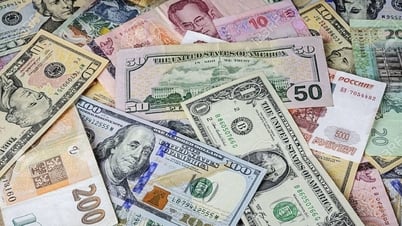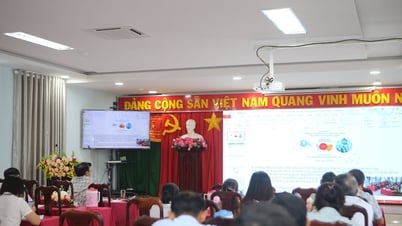Industrial companies in Germany say electricity prices are too high compared to other countries, putting Germany's heavy industry at a disadvantage compared to other manufacturing hubs such as China.

On May 6, German Chancellor Olaf Scholz affirmed that increasing electricity production from renewable energy, not electricity subsidies, is the key to reducing electricity prices for the energy-hungry industrial sector.
Industrial companies in Germany say electricity prices are too high compared to other countries, putting Germany's heavy industry at a disadvantage compared to other manufacturing hubs such as China and the United States.
Faced with this reality, this week, Green Party Economy Minister Robert Habeck announced a plan to subsidize electricity prices by 6 cents/kWh until 2030.
However, on May 5, the Ministry of Finance immediately objected to this subsidy mechanism, citing the lack of budget to implement it.
Speaking to reporters during a visit to a geothermal power plant in Kenya, when asked about the best way to reduce electricity prices, Chancellor Scholz said: “Today there are regions where electricity production is as cheap as we want it to be so that industrial activity can win in global competition without electricity subsidies."
According to the Prime Minister, to extend this across Germany, efforts must be made to increase electricity conversion networks and electricity production from renewable energy.
“We already know that electricity prices will fall further if the target of renewable energies dominating the German electricity generation is met,” Mr Scholz added.
The Economy Ministry said the proposed electricity subsidy could come into effect from 2030, costing around 25-30 billion euros at current market prices. Chancellor Scholz had previously expressed skepticism about the initiative, saying that long-term subsidies would not benefit the economy./.
Source


![[Photo] Close-up of modernized Thu Thiem, connecting new life with District 1](https://vphoto.vietnam.vn/thumb/1200x675/vietnam/resource/IMAGE/2025/6/24/d360fb27c6924b0087bf4f288c24b2f2)

![[Photo] The 9th Party Congress of the National Political Publishing House Truth](https://vphoto.vietnam.vn/thumb/1200x675/vietnam/resource/IMAGE/2025/6/24/ade0561f18954dd1a6a491bdadfa84f1)































































































Comment (0)